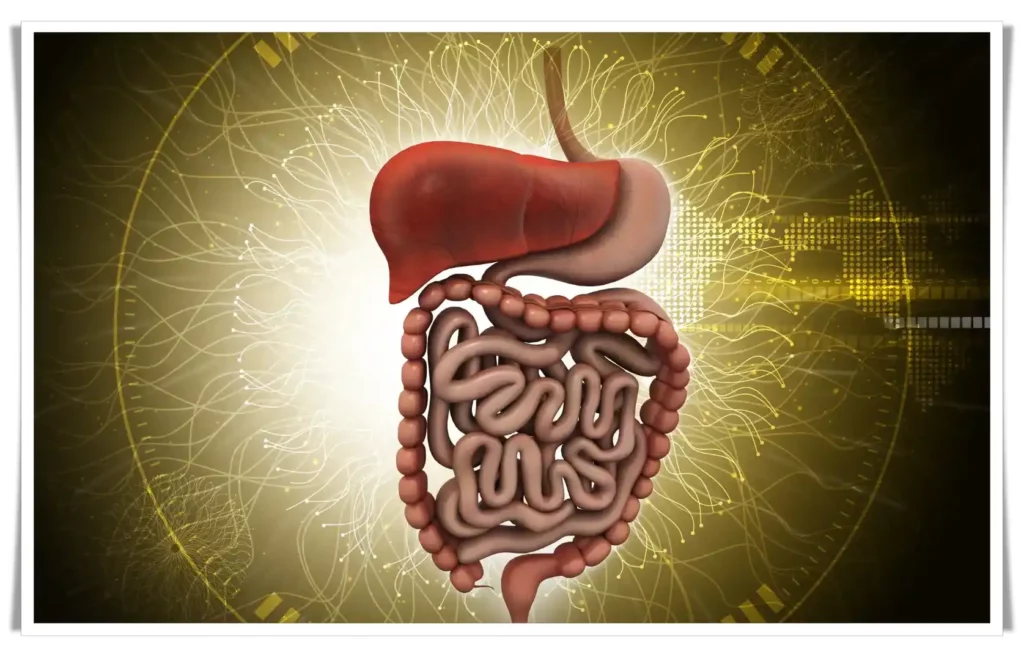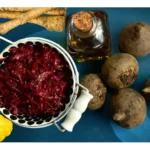Introduction
In our quest for effective weight management strategies, a simple yet often overlooked approach sits right on our dining table—drinking water with meals. It is a natural and health-boosting method that offers significant benefits. The consumption of water during meals doesn't just enhance digestion but also serves as a secret weapon for satiety and weight loss. This article will delve deep into this effective practice, dispelling myths and presenting scientific evidence. Let’s embark on this enlightening journey, and remember - the simplest changes often create the most significant impacts.
Empower Your Health Journey – Explore My Free Apps for a Vibrant, Healthier Lifestyle Today!
The Mechanism: Water, Satiety, and Weight Loss
When we drink water during meals, it aids in creating a feeling of fullness, hence increasing satiety. But how does this process work?

- Food and Water Interaction: When you consume water with solid food, it creates a type of 'soup' in your stomach. This mixture is easier to digest, facilitates the absorption of nutrients, and promotes a sense of fullness. In turn, this suppresses the urge to overeat, which is beneficial for maintaining a healthy weight.
- Stomach Fullness: The more water you drink during meals, the faster your stomach feels full. This reduces the space available for high-calorie, high-fat, and high-sugar foods. This fullness prompts your brain to stop eating, helping you control your overall calorie intake.
Debunking the Digestion Dilution Myth
A widely held belief that has permeated public thought is the notion that drinking water during meals dilutes digestive juices, thereby interfering with digestion. This persistent myth, however, does not hold up under scientific scrutiny and can be misleading for those seeking to optimize their diet and health.
Let's first understand what happens when we ingest food. Upon consumption, food makes its journey down the esophagus to our stomach. The stomach's role in this process is not primarily to digest the food but to act as a kind of 'disinfectant station'. It secretes gastric juice, an acidic concoction made up of hydrochloric acid, potassium chloride, and sodium chloride. This potent mixture serves to sterilize the food, ridding it of any potential pathogens that could cause harm. This important function of the stomach is often overlooked, and it underlines the first mistake in the aforementioned myth; the stomach's main task isn't digestion but sterilization.

Now that the food is pathogen-free, it continues its journey into the intestines. Here is where the primary process of digestion and absorption occurs. Enzymes in the small intestine break down the food into its component parts—carbohydrates into sugars, proteins into amino acids, and fats into fatty acids and glycerol. These are then absorbed by the body and used to provide energy, support growth, and repair, and carry out various bodily functions.
It's within this context that water plays a pivotal role. When consumed with meals, water mixes with the food, transforming it into a more liquefied form. Contrary to the myth, this does not 'dilute' the digestive juices but makes the food easier to digest and the nutrients more accessible for absorption. This process of mixing and breaking down solid food into a more digestible form is called 'mechanical digestion', a vital process that aids nutrient absorption.
Thus, far from hindering the digestive process, drinking water during meals actually supports it, preparing the food for efficient nutrient extraction and absorption. Therefore, we can confidently debunk the digestion dilution myth and advocate for the continued practice of drinking water during meals.
Drinking Cold Water while Eating Hot Food
Drinking very cold water while eating hot food involves an interplay of sensory, physiological, and thermoregulatory processes. However, it's essential to understand that these effects are usually minor and pose no significant health concerns.
- Temperature Contrast: Consuming hot food followed by a gulp of very cold water will lead to a stark contrast in temperatures in your mouth. This can result in an intriguing sensory experience. Some people might find this enjoyable, while others may find it slightly uncomfortable.
- Digestion: There's a myth that drinking cold water during meals could slow down digestion by solidifying fats or cooling the stomach, thereby making it work harder to digest food. However, this claim is largely unsubstantiated. The human body maintains a steady internal temperature of around 37°C (98.6°F), and any very cold water you drink would quickly adjust to this body temperature. Therefore, it is unlikely to have any significant impact on the digestion of fats or other food components.
- Thermoregulation: Drinking very cold water can help in cooling down the body, especially when eating hot or spicy food. Cold water can offer immediate relief by neutralizing the heat, thereby helping in maintaining the body's thermal balance.
- Hydration: Regardless of the water's temperature, it continues to play a crucial role in the digestive process. Water aids digestion by helping break down food and facilitating the absorption of nutrients.
Drinking very cold water after eating hot food isn't inherently bad for your teeth. However, some individuals may experience tooth sensitivity when exposing their teeth to rapid changes in temperature. This phenomenon, known as "thermal sensitivity," can cause a sharp, sudden pain that quickly recedes.
Tooth sensitivity often occurs when the tooth's enamel, which serves as the protective outer layer, is worn down, or when the gums have receded, exposing the roots of the teeth. These areas are more susceptible to temperature changes and can cause discomfort when exposed to very cold substances, like ice water.
The Science Behind the Secret of Satiety
As a hydration essential, water is undeniably important for our body's function, and its role in weight loss is no exception. Contrary to prevalent beliefs, drinking water during meals does not dilute the digestive juices. The stomach's main function is not digestion but to sterilize the food we ingest by secreting gastric juice with an acidic pH.
The act of digestion and absorption of nutrients primarily takes place in the intestines. Here, liquified food is much easier to process. In the stomach, water drunk on an empty stomach leaves within 1-2 minutes, so there's no risk of staying hungry. However, when consumed during meals, water mixes with solid food to create a sort of "soup". This mixture boosts the feeling of satiety, helps to fill the stomach faster, and slows down its emptying speed.
This phenomenon could explain why individuals who drink water after every mouthful of food claim they're full faster.
Drinking Water with Meals: A Simple Strategy for Weight Loss
Similar to a bowl of soup, drinking water during a meal is designed to fill your stomach more rapidly. The more filled it is with water, the less room there is for other high-fat, sugar, and high-calorie products. This water-induced satiety helps control your calorie intake, which is crucial in achieving weight loss.
A good recipe for losing weight might just be 1 mouthful of food, 2 mouthfuls of water. It's a simple yet effective way to manage your portion sizes and keep your caloric intake in check.
Examining the Evidence
There is scientific support for the effect of drinking water with meals on weight loss and satiety. A study by the University of Oxford explored the impact of water intake on weight loss in overweight women. It was found that participants who drank water before their meals experienced greater weight loss compared to those who didn't, supporting the role of water in promoting satiety and weight loss.
The study investigated the effects of drinking water before meals on weight loss amongst overweight and obese middle-aged and older adults. Over 12 weeks, 48 participants were randomly assigned to two groups: one that drank 500 ml of water 30 minutes before their meals and one that didn't. The group that drank water experienced a 44% greater decline in weight compared to the control group. These results are likely due to the increased sense of fullness experienced after drinking water, which leads to a lower caloric intake during meals. Therefore, water consumption before meals might be an effective weight loss strategy, particularly for older adults, where maintaining a healthy weight is important for overall health.
Other scientific resources and literature supporting the importance of water in weight management include:
- Water consumption increases weight loss during a hypocaloric diet intervention in middle-aged and older adults
- Drinking Water is Associated With Weight Loss in Overweight Dieting Women Independent of Diet and Activity
- Replacing caloric beverages with water or diet beverages for weight loss in adults: main results of the Choose Healthy Options Consciously Everyday (CHOICE) randomized clinical trial
- Influence of water drinking on resting energy expenditure in overweight children
Does Drinking Water Help Digest Faster?
While drinking water doesn't necessarily speed up digestion, it does play a crucial role in the overall process. Water aids in breaking down the food we consume, making it easier for the body to absorb nutrients. It also helps soften the stool, which can assist in preventing constipation, a common digestive issue.
However, water doesn't 'fast track' the digestion process. Digestion is a complex process involving many stages and organs, and it typically takes about 24 to 72 hours, depending on the individual and the types of food consumed.
Keep in mind, maintaining proper hydration is important for overall health, not just digestion. So continue to sip water throughout the day to stay well-hydrated and support your body's various functions.
In this diagram:
- The rectangle node (Food Intake) represents the beginning of the process.
- The diamond node (Digestive Process) represents a decision or branching point.
- The circle nodes (Protein Breakdown, Soft Stool) represent processes occurring in the stomach and at the end of digestion.
- The round rectangle nodes (Fat Breakdown, Nutrient Absorption) represent actions facilitated by water.
Role of Water in Digestion and Absorption
Water plays an essential role in both the digestion and absorption of nutrients in the human body. Let's break down how water aids in each step of the process:
- Saliva Production: Water is a primary component of saliva, which starts the digestion process in the mouth. Saliva, produced by the salivary glands, helps moisten food, making it easier to swallow. Additionally, it contains enzymes that initiate the breakdown of carbohydrates.
- Stomach Digestion: In the stomach, water combines with gastric acid to break down food into a semi-fluid mass called chyme. The water in the stomach can also dilute the food, making it easier for the enzymes to act upon it.
- Nutrient Absorption: Once the chyme moves to the small intestine, water helps dissolve the digested nutrients. This allows them to be absorbed into the bloodstream through the walls of the intestines.
- Waste Elimination: Water is vital in the large intestine, where it helps in the formation of stool. By softening the stool, water facilitates the smooth passage of waste, preventing constipation.
- Transport of Nutrients: After absorption, water in the bloodstream helps in transporting these nutrients to different parts of the body where they are needed.
- Hydration: Beyond digestion and absorption, water is essential for maintaining overall hydration levels, which is critical for all bodily functions.
So, my friends, water is an essential component of digestion and absorption, assisting at every stage of the process. Hence, maintaining proper hydration levels is crucial for optimal digestive health.
Breaking Down the Gastric Juices
Gastric juice, the essential fluid in our stomach, plays a pivotal role in the digestion process. As unassuming as it may seem, this clear, highly acidic liquid is a mixture of several crucial components. These components, each serving their unique function, work in harmony to break down the food we consume into simpler forms that our body can absorb and utilize.
Composition of Gastric Juice
The constituents of gastric juice include water, electrolytes, hydrochloric acid, enzymes, mucus, and intrinsic factor. Here, we explore each component and its role in the digestion process.
Hydrochloric Acid
Hydrochloric acid, a potent acid secreted by the stomach's parietal cells, is crucial in creating an acidic environment within the stomach. This acid lowers the stomach's pH to around 2, an acidity level optimal for the activation of certain enzymes and the breakdown of nutrients. It is also instrumental in sterilizing the food we ingest by killing any potential bacteria present.

Pepsinogen and Pepsin
Pepsinogen, secreted by the chief cells in the stomach, is converted into pepsin in the presence of hydrochloric acid. Pepsin is a proteolytic enzyme, meaning it works to break apart tertiary and secondary protein structures, making them easier to digest when they reach the small intestines.
Gastric Lipase
Gastric lipase, another essential enzyme produced by the chief cells, aids in the digestion of fats. Specifically, it targets short and medium-chain fatty acids, breaking them down into simpler forms.
Amylase
Interestingly, gastric juice also contains amylase—an enzyme that isn't produced by the stomach. Originating in the saliva, amylase travels with the swallowed food (bolus) into the stomach. It begins the process of carbohydrate breakdown, although its activity is short-lived due to the stomach's acidic environment. However, the small intestine introduces additional amylase later in the digestive process.
Mucus
The stomach's highly acidic environment is potentially harmful to the stomach lining itself. To counter this, the stomach secretes mucus, providing a protective coating that shields the stomach lining from acid-induced damage.
Intrinsic Factor
The intrinsic factor, produced by the parietal cells, plays an important role outside of the realm of digestion. It is vital for the absorption of vitamin B-12, a nutrient necessary for the healthy functioning of the nervous system and the production of blood cells.
FAQs
- Does drinking water during meals dilutes digestive juices? No, drinking water during meals doesn't dilute the digestive juices. The stomach mainly acts to sterilize food, and digestion primarily takes place in the intestines where liquified food is easier to process.
- How does drinking water with meals support weight loss? Drinking water with meals helps fill the stomach faster, which can increase the feeling of satiety, reduce calorie intake, and therefore aid in weight loss.
- Is there scientific evidence supporting drinking water for weight loss? Yes, multiple studies have found that drinking water, particularly before meals, can lead to significant weight loss.
Conclusion
Losing weight does not have to be an uphill battle filled with complex diets and rigorous workout routines. Sometimes, the secret to satiety and weight loss can be as simple as reaching for that glass of water on your dining table. So, remember, with every mouthful of food, take two of water. Your journey to achieving a healthier weight could start from this very habit.
I encourage you to dive deeper into this topic by exploring our YouTube video where I exposed the benefits of water consumption in detail, or to read another article of mine: ''Eat Your Water: Satisfy Hunger & Boost Health, Between Meals.'' If you found this post insightful, do not hesitate to check out our other articles on healthy living.
I would love to hear about your experiences with water intake and weight loss. Please feel free to leave a comment below and share your story. Remember, every person's journey to health is unique and your experiences could inspire someone else!





Wow, amazing blog format! How long have you ever been blogging for?
you made running a blog glance easy. The total glance
of your web site is great, as smartly as the content!
You can see similar: sklep online and here najlepszy sklep